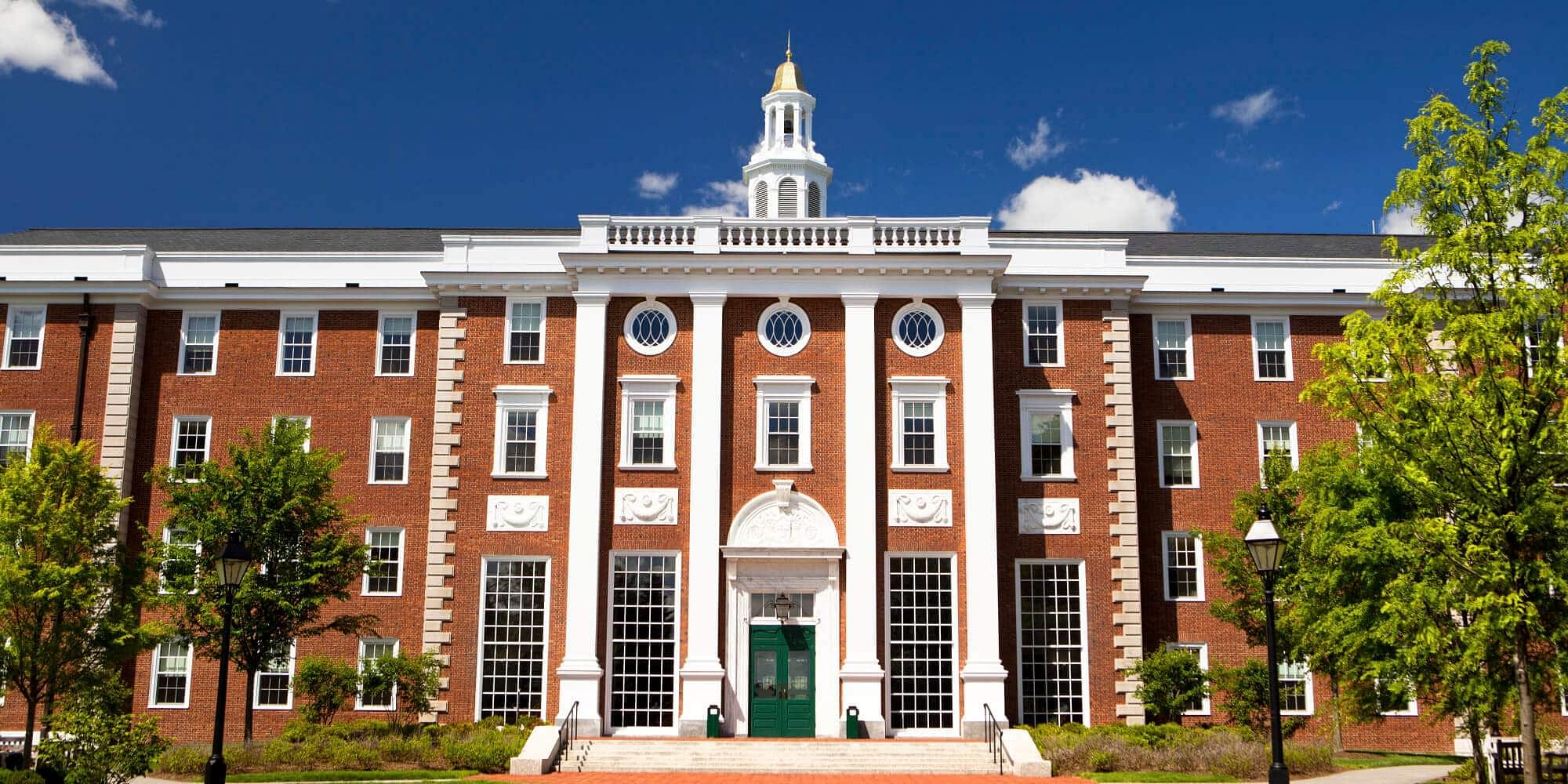1 Harvard University – USA

Location: Cambridge, Massachusetts, USA
Established: 1636
Type: Private Ivy League Research University
Motto: Veritas (Latin for “Truth”)
Overview: Harvard University is the oldest institution of higher learning in the United States and one of the most prestigious universities in the world. It offers a wide array of programs across undergraduate, graduate, and professional levels.
Key Highlights:
- Academic Excellence: Harvard consistently ranks among the top universities globally, known for its rigorous academics, renowned faculty, and cutting-edge research.
- Notable Alumni: Includes several U.S. presidents (e.g., John F. Kennedy, Barack Obama), Nobel laureates, entrepreneurs (e.g., Bill Gates, Mark Zuckerberg), and influential leaders across various fields.
- Research and Innovation: Harvard has over 100 research centers and institutes and is at the forefront of medical, legal, business, and scientific research.
- Endowment: Harvard has the largest endowment of any educational institution globally, providing extensive resources for scholarships, research, and development.
- Global Network: With an expansive network of alumni and collaborations worldwide, Harvard opens doors to global career opportunities and connections.
Schools and Colleges:
- Harvard College: The undergraduate school.
- Harvard Business School (HBS): One of the most prestigious business schools globally.
- Harvard Law School (HLS): Renowned for producing legal scholars, judges, and political figures.
- Harvard Medical School (HMS): A leader in medical education and research.
- Harvard Kennedy School: Focuses on public administration, government, and leadership.
- Harvard School of Engineering and Applied Sciences (SEAS): Known for technological innovation.
Campus Life:
- Student Body: Harvard hosts over 20,000 students from more than 150 countries.
- Extracurriculars: Offers over 450 student organizations, including debate clubs, sports teams, arts, and cultural groups.
- Libraries: The Harvard Library is the largest academic library in the world with over 19 million volumes.
Admission:
- Highly Competitive: With an acceptance rate typically below 5%, admission to Harvard is extremely selective.
- Application Requirements: Applicants are evaluated based on academic performance, extracurricular activities, leadership potential, and personal qualities.
Prominent Research Areas:
- Biotechnology and Medicine
2. Stanford University – USA
Stanford University
Location: Stanford, California, USA
Established: 1885
Type: Private Research University
Motto: The wind of freedom blows
Overview: Stanford University is one of the leading research institutions in the world, renowned for its academic excellence, innovative research, and entrepreneurial spirit. Nestled in the heart of Silicon Valley, Stanford plays a pivotal role in technology and business advancements.
Key Highlights:
- Academic Prestige: Consistently ranks among the top universities globally, offering a comprehensive range of undergraduate and graduate programs across various disciplines.
- Notable Alumni: Stanford has produced numerous influential figures, including U.S. presidents (e.g., Herbert Hoover), tech giants (e.g., Larry Page, Sergey Brin), and Nobel laureates.
- Research Innovation: Home to over 150 research institutes and centers, Stanford is at the forefront of groundbreaking research in areas such as artificial intelligence, medicine, and sustainability.
- Entrepreneurial Ecosystem: Known for its strong ties to Silicon Valley, Stanford fosters a culture of entrepreneurship, encouraging students to launch startups and innovate.
- Diverse Community: With students from all 50 states and over 90 countries, Stanford boasts a vibrant and inclusive campus environment.
Schools and Colleges:
- Stanford College of Humanities and Sciences: The largest school, offering diverse undergraduate programs.
- Stanford Graduate School of Business (GSB): Renowned for its MBA and executive education programs.
- Stanford Law School: A leader in legal education, producing influential legal scholars and practitioners.
- Stanford School of Engineering: Offers cutting-edge engineering programs and research opportunities.
- Stanford School of Medicine: Focused on medical education, research, and patient care.
Campus Life:
- Student Body: Approximately 15,000 students, including undergraduates and graduate students.
- Extracurriculars: Offers over 650 student organizations, including cultural, academic, and athletic clubs.
- Campus Facilities: The expansive campus features state-of-the-art facilities, libraries, and research labs, along with beautiful gardens and outdoor spaces.
Admission:
- Highly Selective: Stanford’s acceptance rate is typically around 4%, making it one of the most competitive universities to gain admission.
- Application Requirements: Candidates are assessed based on academic achievements, extracurricular involvement, personal essays, and recommendations.
Prominent Research Areas:
- Computer Science and Artificial Intelligence
- Biomedical Research and Health Sciences
- Environmental Science and Sustainability
- Social Sciences and Policy Studies
- Business and Economics
3. Massachusetts Institute of Technology (MIT) – USA
Massachusetts Institute of Technology
Location: Cambridge, Massachusetts, USA
Established: 1861
Type: Private Research University
Motto: Mens et Manus (Latin for “Mind and Hand”)
Overview: The Massachusetts Institute of Technology (MIT) is a world-renowned institution recognized for its cutting-edge research, innovation, and rigorous academic programs, particularly in science, technology, engineering, and mathematics (STEM).
Key Highlights:
- Academic Excellence: MIT consistently ranks among the top universities globally, known for its strong emphasis on research and practical application of knowledge.
- Notable Alumni: Includes influential figures such as physicist Richard Feynman, inventor Thomas Edison, and numerous Nobel laureates and Fields Medalists.
- Research Innovation: Home to more than 30 research centers, MIT is at the forefront of advancements in technology, engineering, and the sciences, with significant contributions to fields like robotics, artificial intelligence, and nanotechnology.
- Entrepreneurial Culture: MIT has a robust entrepreneurial ecosystem, supporting startups and innovation through initiatives like the MIT Sandbox Innovation Fund and the Martin Trust Center for MIT Entrepreneurship.
- Global Community: MIT attracts students from over 100 countries, fostering a diverse and collaborative environment.
Schools and Colleges:
- School of Architecture and Planning: Focuses on design, urban planning, and architecture.
- School of Engineering: Offers programs in various engineering disciplines and is one of the largest schools at MIT.
- School of Humanities, Arts, and Social Sciences: Provides a broad range of programs in the humanities and social sciences.
- Sloan School of Management: Known for its MBA program and research in management and business.
- School of Science: Encompasses departments such as physics, chemistry, and biology, emphasizing research and interdisciplinary collaboration.
Campus Life:
- Student Body: Approximately 11,500 students, including undergraduates and graduate students.
- Extracurriculars: Offers more than 500 student organizations, including cultural clubs, professional societies, and sports teams.
- Facilities: The MIT campus features cutting-edge laboratories, libraries, and collaborative spaces designed to foster innovation and creativity.
Admission:
- Highly Competitive: MIT has an acceptance rate of around 6%, making admission highly selective.
- Application Requirements: Applicants are evaluated based on academic performance, standardized test scores, extracurricular activities, essays, and recommendations.
Prominent Research Areas:
- Artificial Intelligence and Machine Learning
- Robotics and Automation
- Energy and Sustainability
- Biomedical Engineering
- Data Science and Analytics
4. University of Oxford – UK

Location: Oxford, England, UK
Established: 1096 (with teaching from 1167)
Type: Public Research University
Motto: Dominus Illuminatio Mea (Latin for “The Lord is my light”)
Overview: The University of Oxford is one of the oldest and most prestigious universities in the world, renowned for its rigorous academic standards, historic significance, and rich tradition of scholarship. It offers a unique tutorial-based education that emphasizes personalized learning and critical thinking.
Key Highlights:
- Academic Excellence: Oxford consistently ranks among the top universities globally, known for its strength across various disciplines, including humanities, sciences, and social sciences.
- Notable Alumni: Oxford has produced numerous prominent figures, including British Prime Ministers (e.g., Margaret Thatcher, Tony Blair), renowned authors (e.g., J.R.R. Tolkien, C.S. Lewis), and many Nobel laureates.
- Research Innovation: With a vast array of research centers and institutes, Oxford is at the forefront of advancements in fields like medicine, technology, and social policy, contributing significantly to global knowledge.
- International Community: Attracting students from over 160 countries, Oxford boasts a diverse and vibrant community that fosters cross-cultural exchange and collaboration.
- Historic Campus: The university features stunning architecture, historic libraries, and beautiful gardens, providing an inspiring environment for study and research.
Colleges and Departments:
- Colleges: Oxford comprises 39 colleges, each offering a unique community and support structure for students.
- Faculties: The university includes various faculties and departments, covering a wide range of subjects from medicine and law to literature and philosophy.
Campus Life:
- Student Body: Approximately 26,000 students, including undergraduates and postgraduates.
- Extracurriculars: Offers over 1,000 student organizations, including sports clubs, cultural societies, and academic groups.
- Support Services: Oxford provides extensive support services, including academic counseling, mental health resources, and career guidance.
Admission:
- Highly Competitive: Oxford’s acceptance rate is around 17%, making it one of the most selective universities in the world.
- Application Requirements: Applicants are evaluated based on academic achievements, standardized test scores (e.g., UKCAT, BMAT), personal statements, and interviews.
Prominent Research Areas:
- Medicine and Health Sciences
- Humanities and Social Sciences
- Engineering and Technology
- Environmental Studies and Sustainability
- Artificial Intelligence and Data Scien
5. University of Cambridge – UK
The University of Cambridge, established in 1209, is one of the world’s oldest and most prestigious academic institutions. Located in Cambridge, England, it has a long-standing history of excellence in education, research, and innovation.
Overview
- Location: Cambridge, England
- Founded: 1209
- Motto: Hinc lucem et pocula sacra (“From here, light and sacred draughts”)
- Campus: A blend of historic buildings and modern facilities, set in a scenic, college-based system.
Academic Excellence
Cambridge offers a broad spectrum of undergraduate, graduate, and doctoral programs across various disciplines. The university is renowned for its research contributions and academic rigor in fields such as:
- Natural Sciences
- Engineering
- Humanities
- Social Sciences
- Medicine
Notable Departments and Faculties:
- Cavendish Laboratory: Famous for groundbreaking research in physics.
- Faculty of Law: One of the leading law schools in the world.
- School of Clinical Medicine: Known for advancements in medical research and education.
Collegiate System
Cambridge operates through a unique collegiate system, consisting of 31 autonomous colleges. Each college offers a close-knit community for students, providing accommodation, personal tuition, and support. Some of the most famous colleges include:
- Trinity College
- King’s College
- St. John’s College
Research and Innovation
Cambridge has been a leader in research for centuries, contributing significantly to the advancement of knowledge in various fields. With numerous Nobel laureates among its alumni, it remains at the forefront of scientific discoveries and intellectual breakthroughs.
Research Highlights:
- Pioneering work in quantum mechanics and genetics.
- Major contributions to AI development, sustainability, and climate change research.
- Cambridge University Press, one of the oldest and largest academic publishers in the world.
Notable Alumni
Cambridge has produced a remarkable number of influential alumni, including:
- Sir Isaac Newton: Mathematician and physicist.
- Charles Darwin: Naturalist and father of evolutionary theory.
- Stephen Hawking: Renowned theoretical physicist.
- Emma Thompson: Acclaimed actress and writer.
- Prince Charles: The current King of the United Kingdom.
Admissions
Cambridge is highly competitive, with an acceptance rate of less than 20%. The admissions process focuses on academic excellence, extracurricular achievements, and personal statements. Applicants must meet specific academic requirements and often face rigorous interviews.
Global Impact
Cambridge’s influence extends far beyond the UK. It collaborates with universities and research institutions worldwide, shaping global policy, culture, and science.
Conclusion
The University of Cambridge remains a beacon of academic achievement, offering an unmatched education across a wide range of disciplines. With its prestigious history, world-class faculty, and extensive research contributions, it continues to be a global leader in shaping the future of education, science, and society
]
